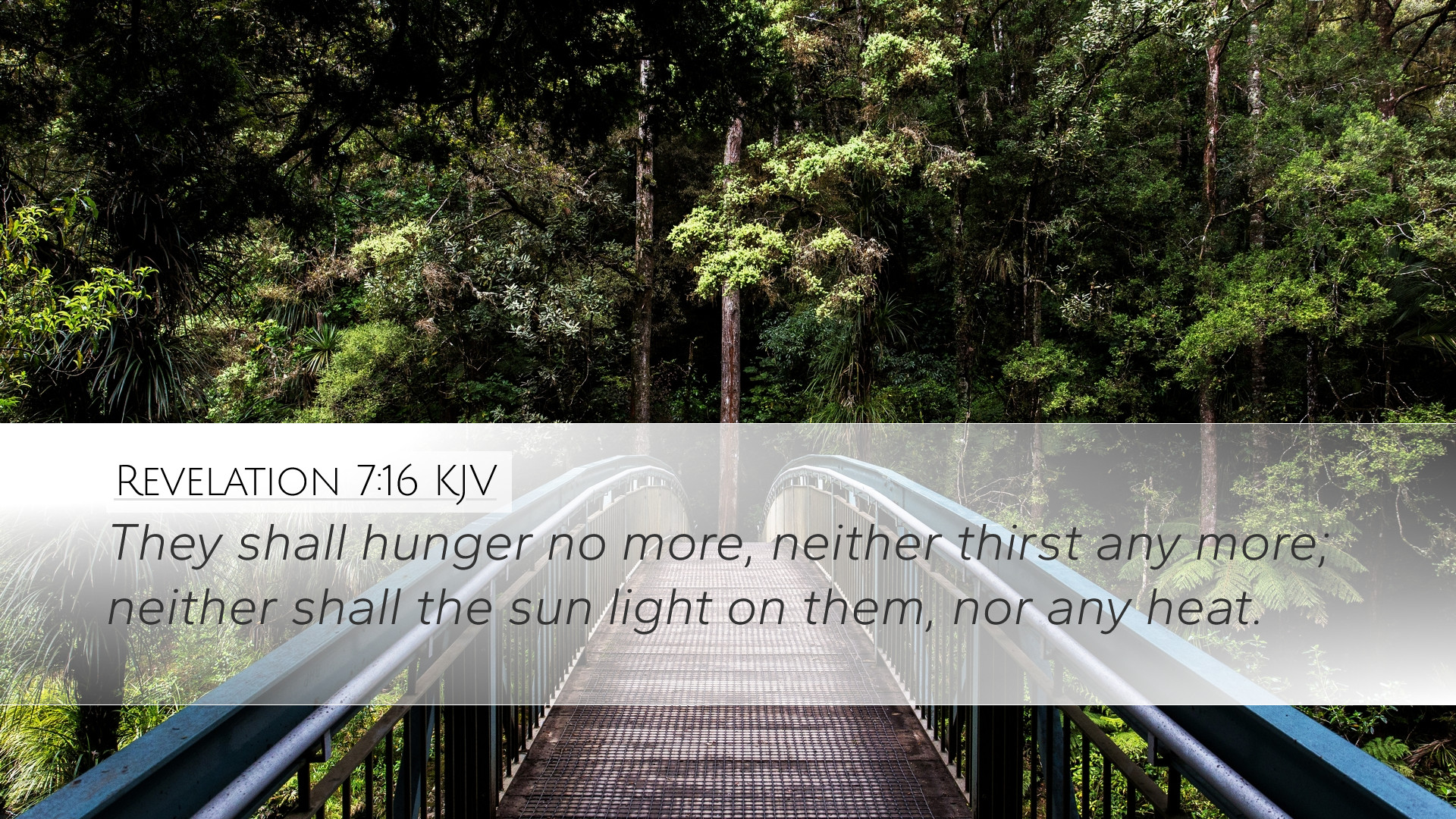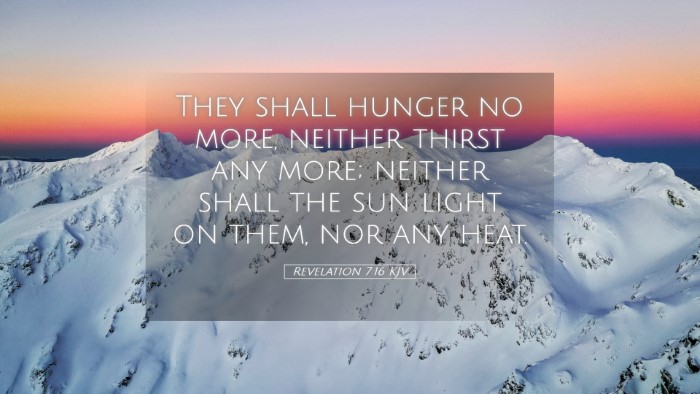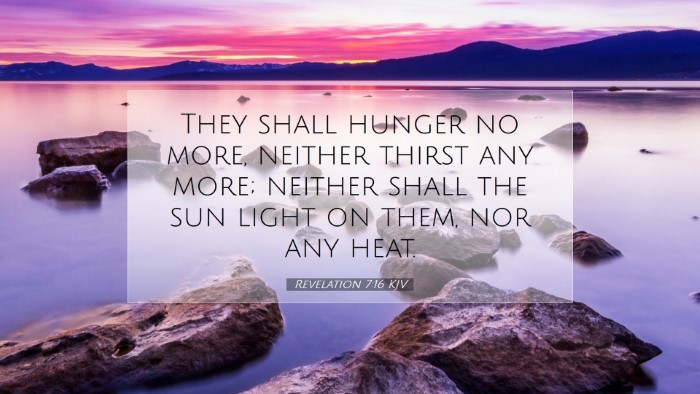Revelation 7:16 - Commentary Overview
Revelation 7:16 states: "They shall hunger no more, neither thirst any more; neither shall the sun light on them, nor any heat." This verse is situated in the context of the vision of the great multitude standing before the throne of God, which highlights the comfort and protection of God over His people. In this commentary, we will explore insights from notable public domain commentaries including those by Matthew Henry, Albert Barnes, and Adam Clarke.
Contextual Analysis
This verse appears in a chapter that describes the sealing of the 144,000 servants of God and the vision of the multitude from every nation. The imagery represents the relief from suffering and trials that believers will experience in the eternal presence of God.
Matthew Henry's Commentary
Matthew Henry remarks on the deep comfort provided to the faithful by this passage. He emphasizes that the spiritual and temporal needs of believers will be fully met in the presence of God. The hunger and thirst mentioned are not merely physical but refer to the soul's desires which will find ultimate satisfaction in God. He states:
"In heaven, all hunger and thirst shall cease, for the Lamb will feed them and lead them to living fountains of water." (Henry)
Henry also notes that the mention of the sun and heat symbolizes the trials and oppressions endured in life. In eternity, these will be eliminated, highlighting the protection and comfort provided by God.
Albert Barnes' Insights
Albert Barnes expands on the imagery of hunger and thirst, explaining that these conditions signify the lack of spiritual sustenance that believers often feel in a fallen world. He emphasizes:
"This is the condition of the blessed in heaven, where they are free from all forms of discomfort and want." (Barnes)
Furthermore, Barnes connects this verse to the prophetic writings that assure the faithful of God's eternal provision. The phrase "neither shall the sun light on them, nor any heat" encapsulates the absence of suffering and signifies perpetual peace in God’s presence. He interprets this as a reflection of the prophetic assurances found in Isaiah, underscoring the theme of comfort for God’s people.
Adam Clarke's Interpretation
Adam Clarke offers a detailed examination of the symbolic aspects of the verse. He points out that the imagery of hunger and thirst can symbolize spiritual longing as well as earthly suffering. Clarke expresses:
"The Lord shall provide for their wants as a shepherd cares for his flock." (Clarke)
Clarke's emphasis on God as a shepherd is significant, portraying not just provision but also guidance and care. He suggests that this passage assures believers of God's commitment to their well-being, both material and spiritual. Each believer's longing for sustenance will be met in the eternal state, further reinforcing the theme of divine fulfillment.
Theological Implications
The theological dimensions of Revelation 7:16 are profound. This verse speaks to the eschatological hope that informs Christian faith. It draws attention to several key themes:
- God's Faithfulness: The promise of eternal satisfaction highlights God's unwavering faithfulness to His people.
- Redemption and Restoration: The absence of hunger and thirst signifies ultimate redemption, restoring believers to a state free from earthly trials.
- Hope in Suffering: For the oppressed and suffering, this passage offers hope that present conditions will not last forever; relief and comfort are assured.
Practical Applications
This verse not only speaks to the future but also resonates with the present experiences of believers. It serves as a reminder to pastors, students, and scholars of the following:
- Soul Care: Pastors should encourage congregants who are struggling with spiritual hunger, assuring them of God’s provision.
- Community Support: Churches can embody the hope of this verse by caring for those who face physical or emotional needs, representing God's love in action.
- Eschatological Hope: Teaching on the nature of eternal life can foster resilience in suffering, encouraging believers to remain steadfast in their faith.
Conclusion
In conclusion, Revelation 7:16 is a profound assurance of God's provision and presence experienced through faith. Insights from Matthew Henry, Albert Barnes, and Adam Clarke empower this understanding, illuminating the spiritual realities that await believers. The verse assures us of a future devoid of suffering and lack, emphasizing the rich promise of eternity with God. As pastors, theologians, and students engage with this text, may it inspire a deeper trust in God's faithful promises.


